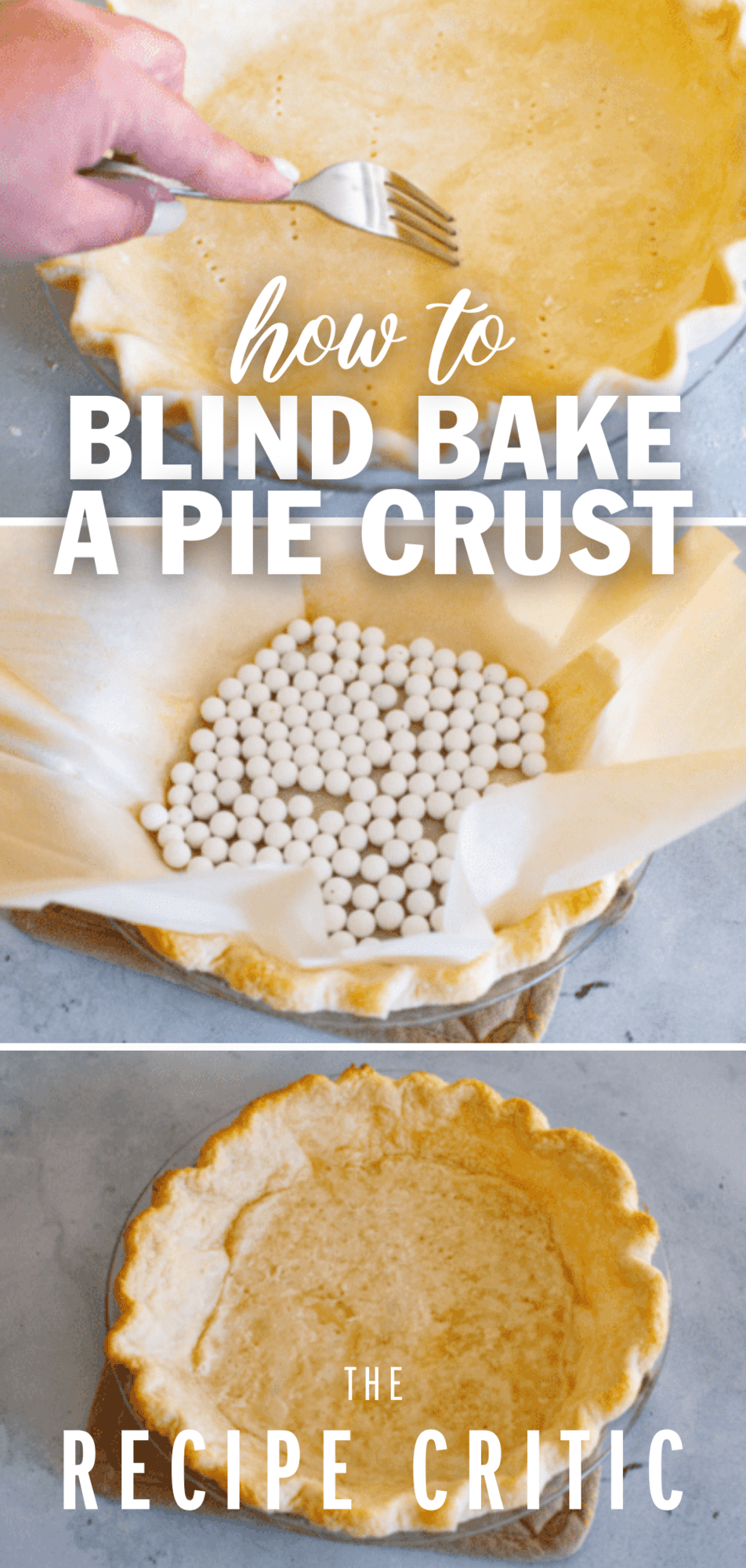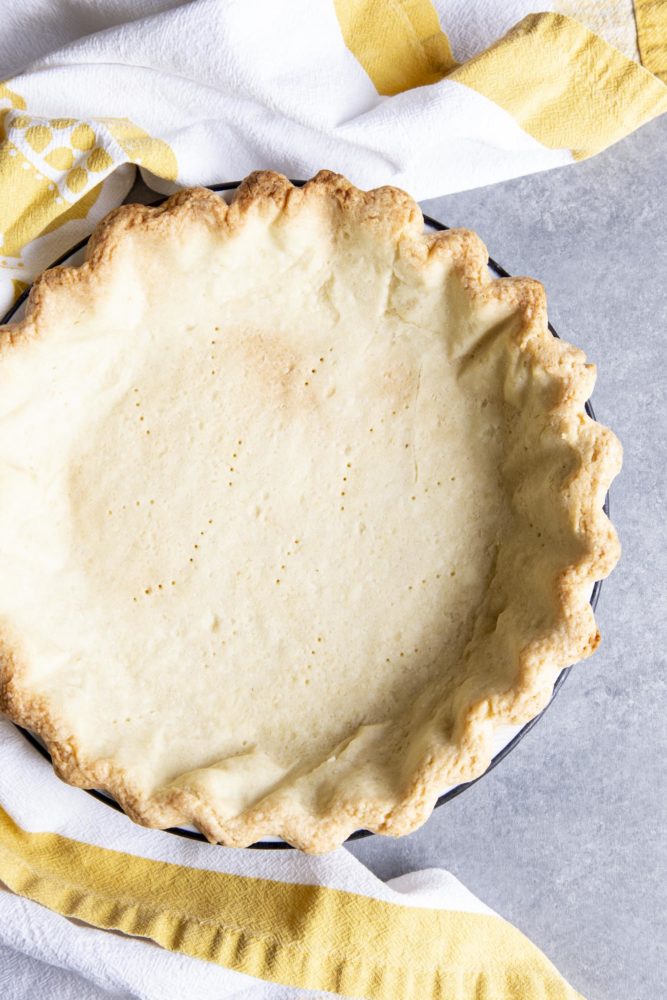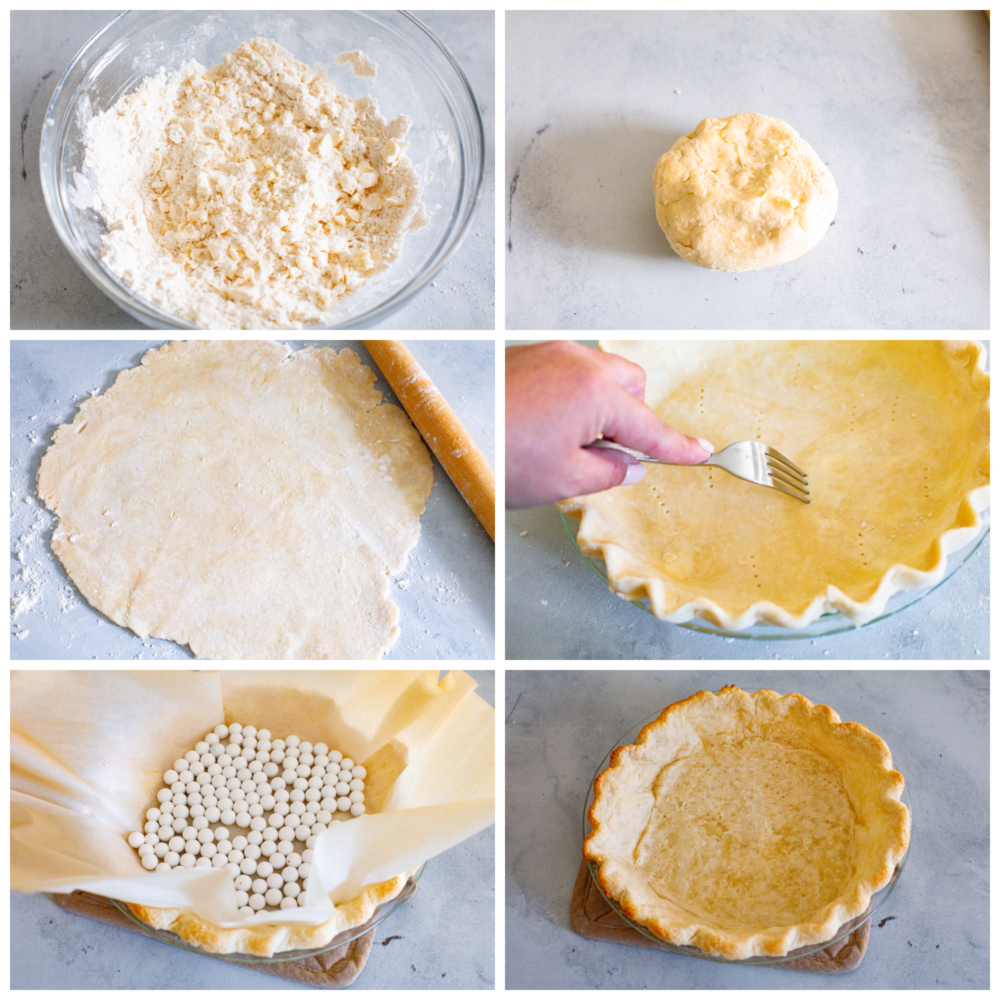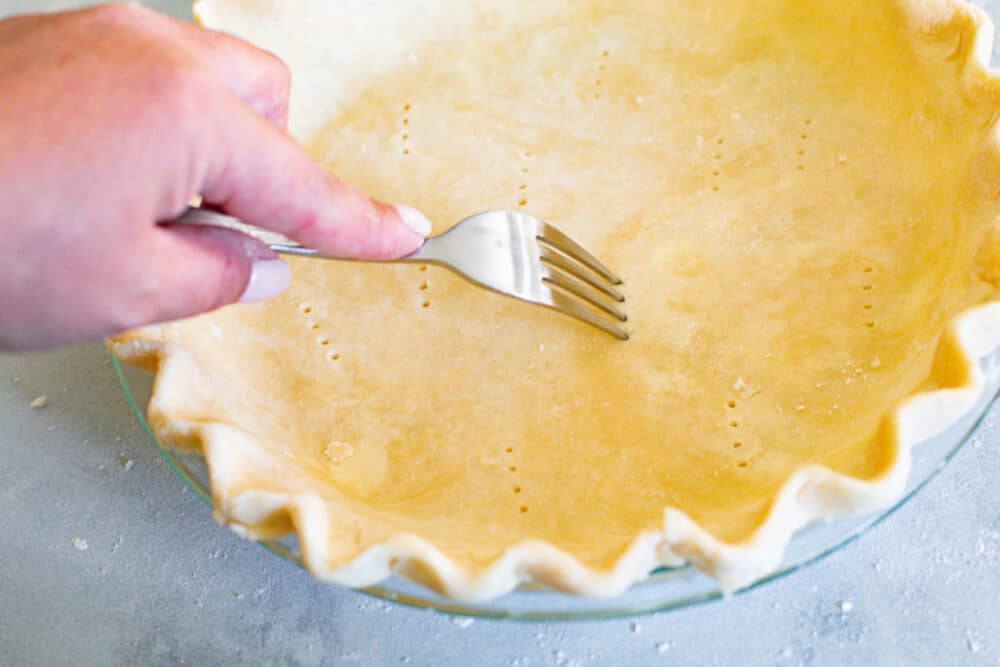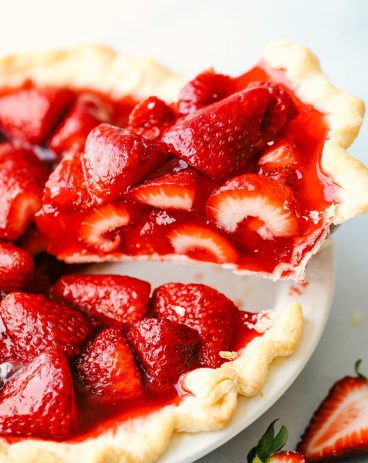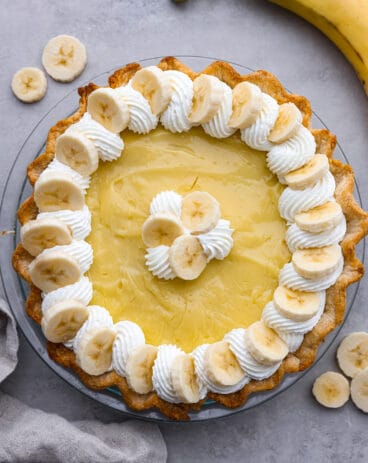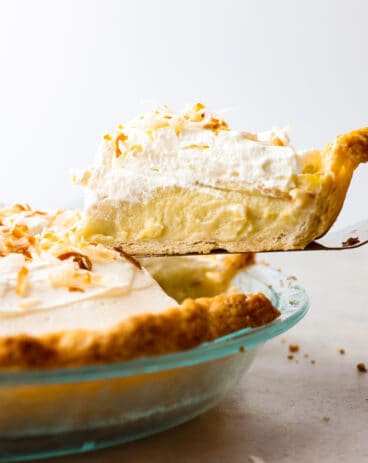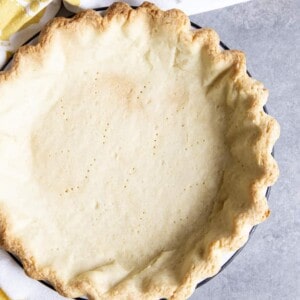If you have been wondering how to blind-bake a pie crust, you are in the right place! This pie crust is the perfect solution to any pie that you need a baked pie crust for (I’m looking at you, cream pies)! It’s perfectly flaky and delicious! You can use this delicious pie crust for so many different pies. And since the holidays are just around the corner, this is a great recipe to have on hand! Try using this with this delicious Banana Cream Pie, this Perfect Coconut Cream Pie, or this delicious Key Lime Pie!
What is Blind-Baking?
Whether you’re using a premade or homemade pie crust, blind baking is going to ensure it doesn’t end up soggy. It’s a simple step that will take your homemade pies to the next level. By now, you’ve probably seen the term blind baking (also known as par-baking) scattered throughout pie recipes. This technique is used for baking a pie crust either partially or completely before any filling is added. As simple as it may seem, it’s a crucial step in making sure your pie crust is everything it should be; golden, flaky, and delicious as opposed to soggy and/or undercooked. Don’t let blind baking intimidate you. It’s actually really easy! First, determine whether the kind of pie you’re making requires a partial or full-blind bake. (I’ll tell you the difference below!) From there, all you need is some parchment paper, a pie dish, and either beans or pie weights to start the process!
Pie Crust Ingredients
This list of ingredients is so short, and I bet that you already have everything on hand that you need to start baking your pie crust! Check out the recipe card at the bottom of the post for exact measurements.
Pie Crust: You can buy a pre-made crust from the store or make your own using my grandma’s recipe! Parchment Paper: You will use this so that the pie weights (or beans) don’t stick to the uncooked crust)Pie Weights: These are to hold the pie crust down while it bakes. You can use uncooked, dried beans if you don’t have any pie weights!
How to Blind Bake a Pie Crust
Now that you’re familiar with the process, here are step-by-step instructions on how to get that perfectly golden, flaky pie crust!
Chill the Dough: Chill the crust before baking to allow the fat in the dough to harden. This will help the crust maintain its shape as it bakes.What Does it Mean to “Dock” Your Pie? Docking is a simple technique where you prick the bottom of your pie crust with a fork before you bake it. The little holes allow steam to escape so that the bottom of the crust doesn’t puff up. Some people swear by this alone to help their pie crusts retain their shape during the baking process, but I like to use it in tandem with pie weights to keep any puffing or shrinking from happening. A combination of docking and pie weights is the best way to get that picture-perfect pie crustUse Parchment Paper: I recommend using parchment paper instead of aluminum foil. Foil tends to stick to the dough of the crust, which means you can risk pulling it up and creating a hole in the bottom when it’s time to remove the weights. Using parchment paper will help keep this from happening. Using Beans as Pie Weights: Uncooked beans are inexpensive and readily available in most grocery stores, and they make perfect pie weights! Use enough beans to fill the crust about halfway. Let them cool completely before placing them in an airtight container. The same beans can be used over and over.Let Your Crust Cool Completely: Let the crust cool completely before adding your filling. This will allow it to release any steam or heat that might be trapped by a filling, which can end up resulting in a soggy crust.
At Room Temperature: Let the crust cool completely before placing it in an airtight container. Use within three days.
The Easiest Fresh Strawberry Pie
Banana Cream Pie
Blueberry Lattice Pie
Perfect Coconut Cream Pie
All nutritional information is based on third party calculations and is only an estimate. Each recipe and nutritional value will vary depending on the brands you use, measuring methods and portion sizes per household.
The Best Homemade Alfredo Sauce Recipe Ever!
Insanely Delicious Prime Rib Recipe
Lemon Garlic Parmesan Shrimp Pasta
